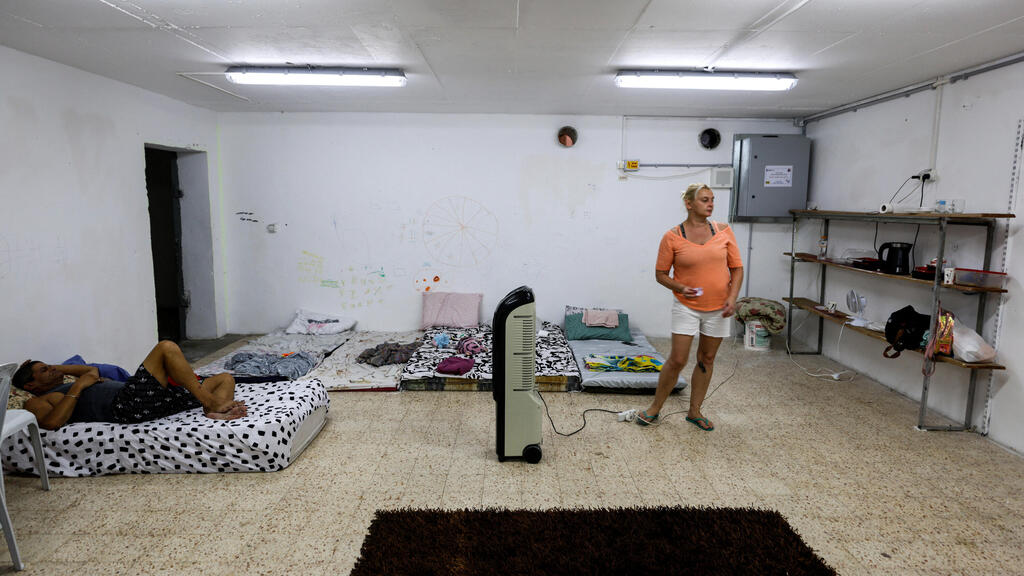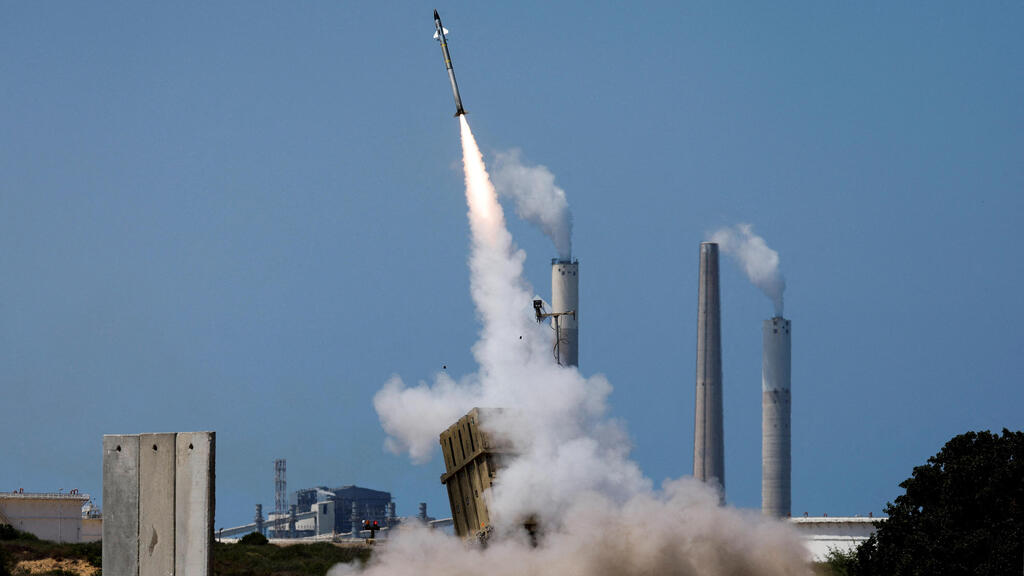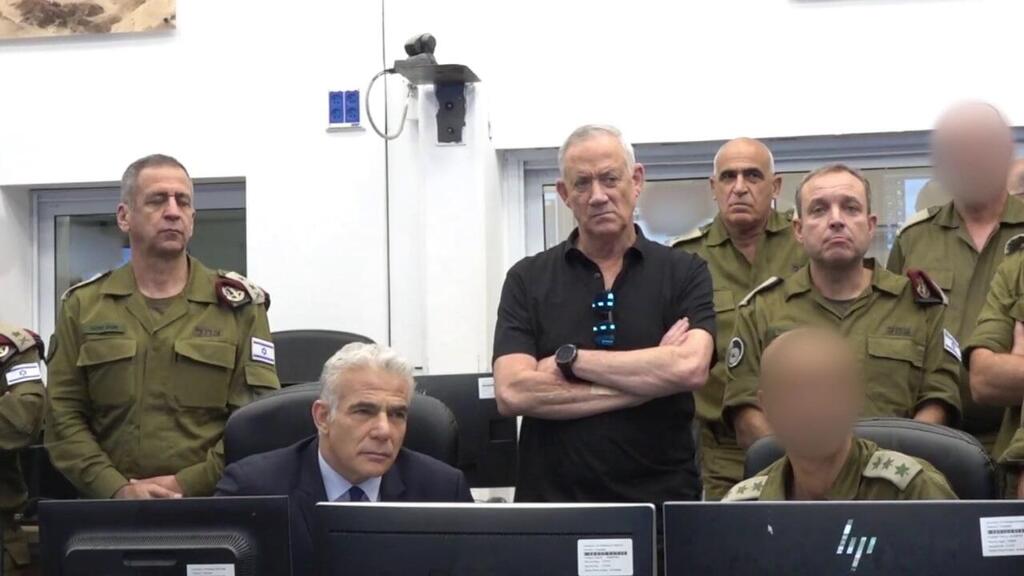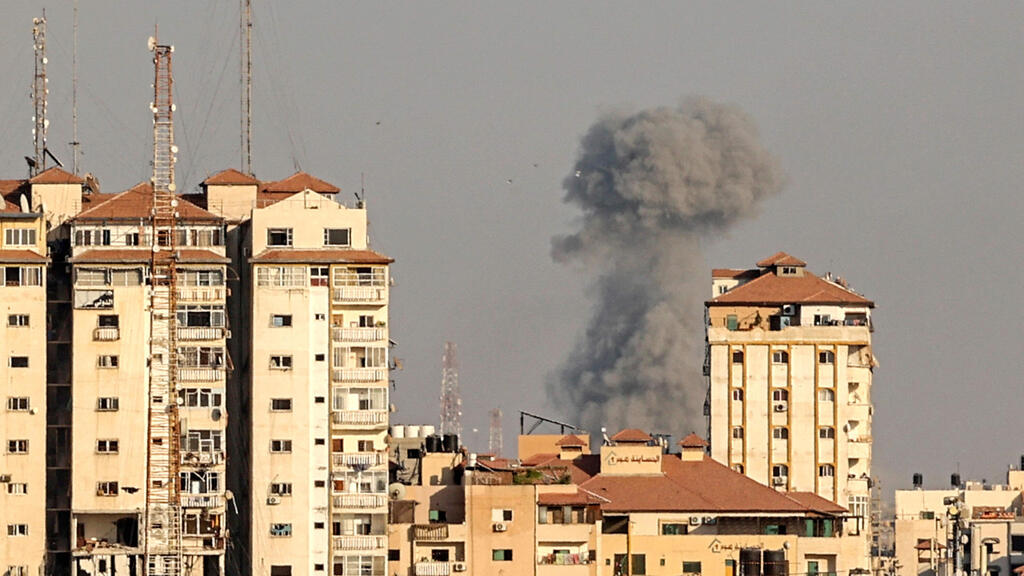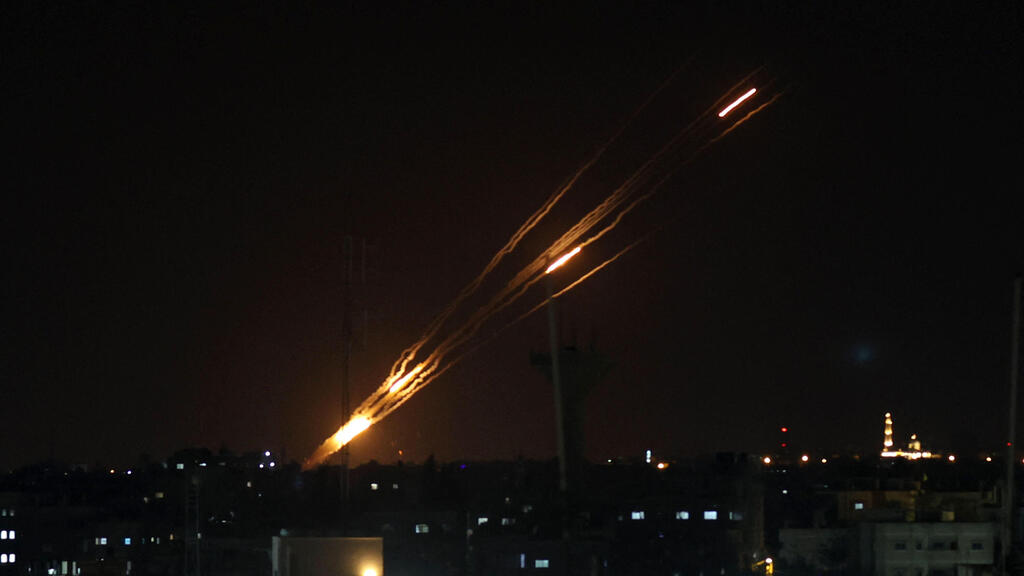Some 66 hours passed from the moment Prime Minister Yair Lapid gave the green light for the IDF and Shin Ben to take out the high-profile Palestinian Islamic Jihad (PIJ) commander, Tayseer Jabari, to the moment the terror group was compelled to agree to a ceasefire on Sunday night.
The usage of the word compelled here is crucial. The PIJ leader Ziyad al-Nakhalah, who is currently in Tehran, as well as the organizations' other leaders in Gaza and Damascus, had no choice but to accept what the Egyptian mediators' offer, even though it asked for no significant sacrifice from Israel.
The ceasefire lacks any form of substantial political or military content, and does anything but put the organization at ease. It was essentially an unconditional surrender for the Jihad, for the sake of Hamas and Gaza residents.
In turn, for the restraint shown by Hamas throughout the last few days of fighting, Israel immediately resumed its obligations vis-à-vis Gaza that were agreed upon before the operation.
There is no doubt that the Operation Breaking Dawn was an outright Israeli triumph in all aspects: military, political, and financial. It showcased Israel's impressive ability to manage a security crisis, which involved not only the IDF and Shin Bet, but also the government and civilians, who conveyed great determination and obedience.
The Israeli public, with the cooperation of the Shin Bet, intelligence unit, soldiers and commanders, pilots, and UAV operators, all took part in making this operation a memorable Israeli victory.
The spirit of the PIJ would have been lifted by any sign of Israel's weakness. Casualties on our side would have likely caused the terror group to prolong their offensive.
This time around, instead of mourning losses at home, Israel came out of the operation feeling uplifted that justice has been done. This is contrary to previous Gaza campaigns, in which Israeli casualties and material losses blinded us from seeing the accomplishments.
This morale boost has directly influenced the political echelon, especially Prime Minister Yair Lapid and Defense Minister Benny Gantz, who approved the daring plan presented to them by the IDF and Shin Bet.
However, it must be noted that the IDF and civilians were blessed with a lot of luck. A lot of things had the potential to go wrong, yet the odds were in our favor.
The missiles fired by our jets landed exactly where they were supposed to, the intelligence was flawless, and the collateral damage, i.e. innocent Gazan civilians, was kept to a minimum. Less than a third of the Palestinian casualties were a result of Israeli fire. This is a noteworthy accomplishment when comparing to previous operations, in which at least half of the casualties were uninvolved civilians. More so, this accomplishment is also noteworthy when compared to armies of other democratic countries.
There's no point in dwelling on the poor management of the Jihad's military wing, but it is important to pay attention to the organization led by Al-Nakhalah. The distant leader was far too eager to please his patrons in Tehran, and thus allowed the IDF and Shin Bet to manage the operation in ideal circumstances.
Nonetheless, it's important that the government and the IDF investigate and learn lessons from this campaign - not just from the failures, but also from the accomplishments. It must be assumed that the luck we were blessed with this time probably won't be on our side next time, and that it's fair to expect that "the next time" is right around the corner.
The main takeaway from this operation is that precise political and military preparations are necessary for success in the battlefield. This kind of preparation calls for resources - mostly time - hence the IDF must plan and practice to prepare for operations where we are not the initiators, who always have the upper hand.
We must also applaud the restraint of Lapid and Gantz, who kept quiet, while setting the stage for Chief of Staff Aviv Kochavi and Shin Bet Director Ronen Bar to surprise the PIJ with a multidimensional blow. Less than three minutes into the mission, the PIJ was already thrown off, giving Israel the upper hand. If Lapid and Gantz were to fall into political traps and disclose the plan to additional parties, the surprise attack would not have been possible.
Israel also stood strong in refusing the PIJ's ridiculous terms for truce, proposed to the mediators, while at the same time showing readiness to end the fighting.
Both the entry and exit strategies of the operation were perfect, especially considering the common mistakes the winning side sometimes makes by neglecting the diplomatic and political fronts upon victory.
Still, the operation neither solved the problem in Gaza, nor promoted any solution. Another worrying takeaway from this operation is the PIJ were not obliterated. It still has the ability to cause harm both in Gaza and the West Bank.
Additionally, we must not forget that this round of fighting was conducted under ideal circumstances - against a cruel yet very limited enemy, in a small battlefield in which Israel not only has the authority to impose a blockade, but also gather intelligence and obtain mobility very easily.
An operation in Lebanon or Syria, or both simultaneously, will require the IDF to activate all its units and function under much tougher conditions. More so, the phenomenal success rate of the Iron Dome can not be seen as a standard in the case of missile attacks from Hezbollah or Iran.
The launchpads used by the Jihad during this operation were very scarce, and no UAVs were activated at all. Thus, the IDF's air defense system too, enjoyed ideal circumstances. The Operation Breaking Dawn was not representative of potential conflicts the IDF may get caught up in in the futire, and was merely a good exercise for the troops.
Nonetheless, Israel came out of this operation with three major accomplishments.
First - thwarting a strategic attempt by the Jihad to impose restrictions on Israel's action against its members in the West Bank, who want to carry out deadly terror attacks against Israeli citizens.
The second - deterrence of our regional enemies, such as Iran, Hezbollah, and Hamas. They sat aside and watched as Israel's impressive intelligence and Air Force managed to isolate the Jihad from Hamas and Iran, and maintained legitimacy through it all.
The third - strengthening of Israel's regional and international status, and the relations with the countries that are part of the Abraham Accords. Israel proved that it is indeed ready and capable of fighting for the sake of its civilians and sovereignty.



